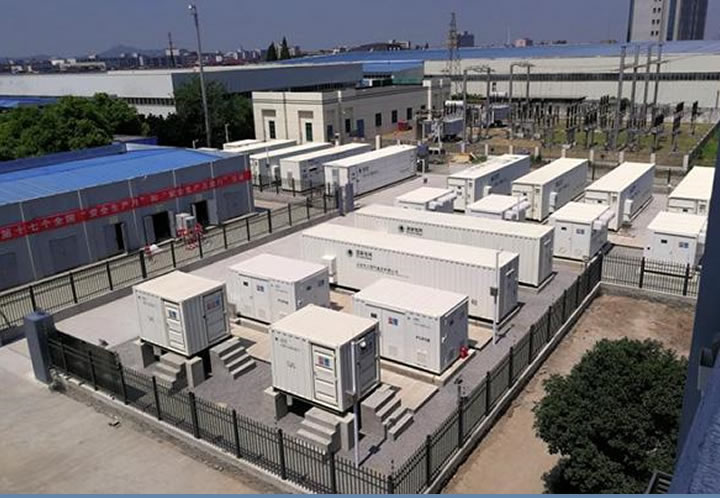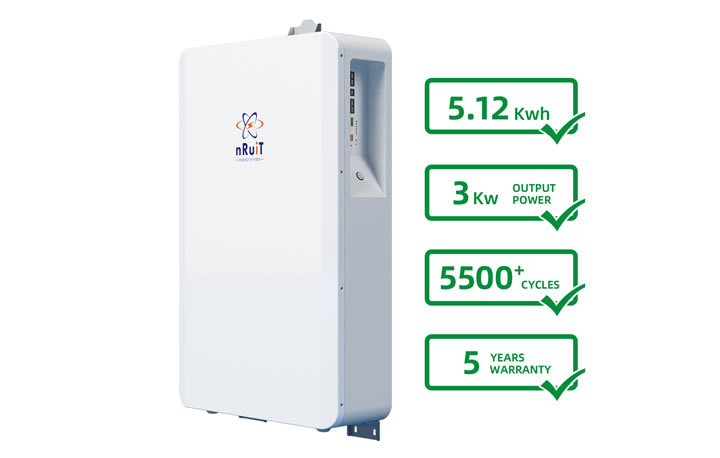Lithium iron phosphate battery (LFP) is a lithium-ion battery capable of quick charging and discharging compared to conventional batteries, including lead-acid and other lithium batteries. Typically, lithium iron phosphate is a rechargeable battery that comprises LiFePO4 as its positive material.
Commonly, lithium iron phosphate battery is also known as lithium Ferro-phosphate battery. It is the best lithium battery storage that matches customers’ requirements, safer, durable, lightweight, highly efficient, and more compatible with the environment. Accordingly, we will discuss everything you want to know about lithium battery storage.
Lithium battery storage has several distinctive features which are usually not present in any other battery. Thus, here are some of the features of lithium iron phosphate battery storage:
- Offers comparatively better power density.
- Possesses lower discharge rate for more extended service.
- Prevails with a flat discharge curve.
- Remains less heated while serving.
- Offers a higher number of charge cycles.
- Provides users with excellent safety.
How Long Do Lithium Batteries Last in Storage?
A considerable number of external factors affect the lithium battery like, in which condition the user stores the battery and whether it is cold or hot? Manufacturing of internal electronics, and how do they control the current within the storage?
If you store your lithium storage battery, it will likely be safe for 3 to 6 years. But if it has extra exposure to the harsh environment, it might not serve its due term. Technically, a lithium iron phosphate battery life is up to 5000 cycles at 80% depth of discharge in working conditions.
During this time, the performance of the battery remains constant. In contrast, the life of conventional batteries, such as lead-acid batteries, is only two years. Remember, one charge cycle is a time of utilization from wholly charged to wholly discharged and then completely recharged again.
In recent years, lithium storage battery has become famous for extensive applications since it possesses one of the long-lasting and most robust chemistries. Subsequently, lithium batteries last much longer in storage and working conditions.
Application Fields of Lithium Battery Storage
One unsurpassed feature of lithium storage batteries is that they are readily available in multiple shapes and capacities from several kWh to MWh. However, irrespective of the capacity and size of the system, these batteries render the best option for power needs.
In the energy sector, lithium storage batteries offer across the spectrum power solution from energy storage solutions to portable energy solutions. So, here are probably the most significant applications of lithium-ion batteries:
- Laptops, mobiles, and other commonly used electronic devices.
- Energy storage power systems, including water-power, wind-power, fire-power, and solar-power stations.
- Uninterrupted power supply for post and broadcast communications.
- Electric mobility, such as electric vehicles, electric bicycles, electric motorcycles.
- Military equipment, electric tools, aerospace, and other related fields.

Benefits of Using Lithium Battery Storage
Innumerable advantages are associated with the use of lithium battery storage. Along these lines, here are some of the most common benefits of lithium battery storage:
High Energy Density: Lithium batteries are incredibly high in energy density. As a result, these batteries last much longer than other batteries and maintain a constant high current output. The typical examples of high energy density include batteries of laptops, mobiles, and electric vehicles.
Low-Self Discharge: Compared to lead-acid or nickel-cadmium batteries, not only while being used, but lithium batteries have a clear advantage even when they are not in use because the self-discharge rate is much low. In fact, in most cases, the self-discharge rate may be initially 5% in the first 4 hours after getting charged and then falling to around 1-2% per month.
Minimum Maintenance: Unlike nickel-cadmium or lead-acid batteries, where the costs for maintenance are higher, lithium batteries have much lower maintenance tasks and expenses because they don’t need to get watered. In addition, maintenance is not required to make sure their performance when used appropriately.
Contain Higher Temperatures: Lithium-ion batteries are intended to work at higher temperatures than lead-acid batteries, and therefore, hotter temperatures will have a reduced impact. You can use most lithium-ion batteries at around 30°C, approximately 10 degrees more than lead-acid batteries, without affecting their calendar life. In addition, it enables you to raise room temperatures, bringing down cooling expenses by diminishing energy utilized for cooling.
Consequently, lithium iron phosphate batteries are the best energy solution provider. Moreover, they have plenty of edges over other conventional batteries, including lead-acid, nickel-cadmium, or even other lithium-based batteries. In the interim, to add further convenience for customers, we recommend nRuit Energy solutions that massively resolve your energy problems.

Conclusion
How to find the best clean energy solution? Lithium iron phosphate storage batteries get widely adopted across the globe for clean energy solutions. Compared with other batteries, lithium batteries have a lot of excellent points and advantages.
Meanwhile, nRuit Energy is a substantial company that deals in manufacturing energy solutions and offers the best products in the market. Hence, if you are convinced to have a lithium iron phosphate battery, nRuit Energy’s clean energy solutions and manufactured products are entirely worthwhile.

